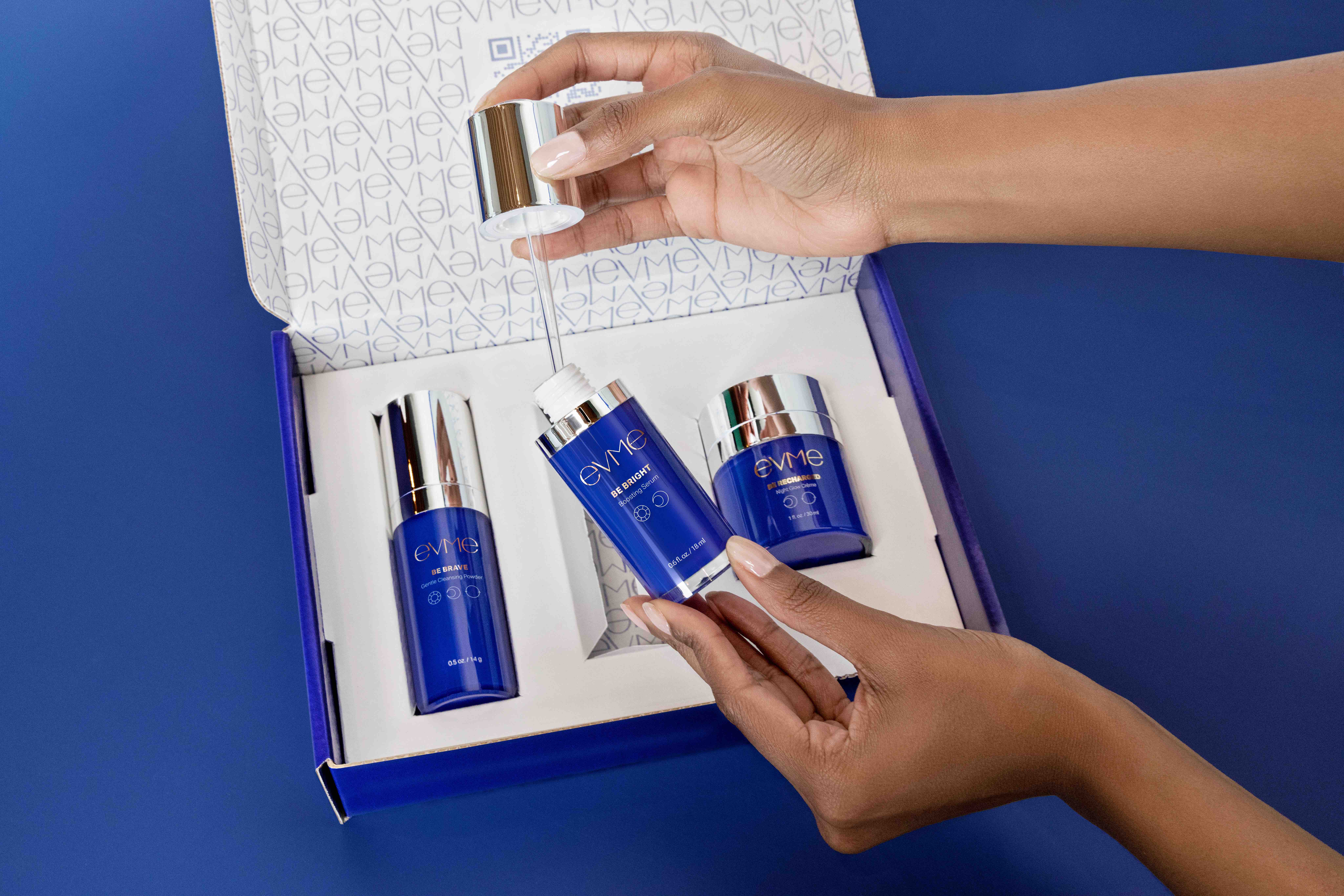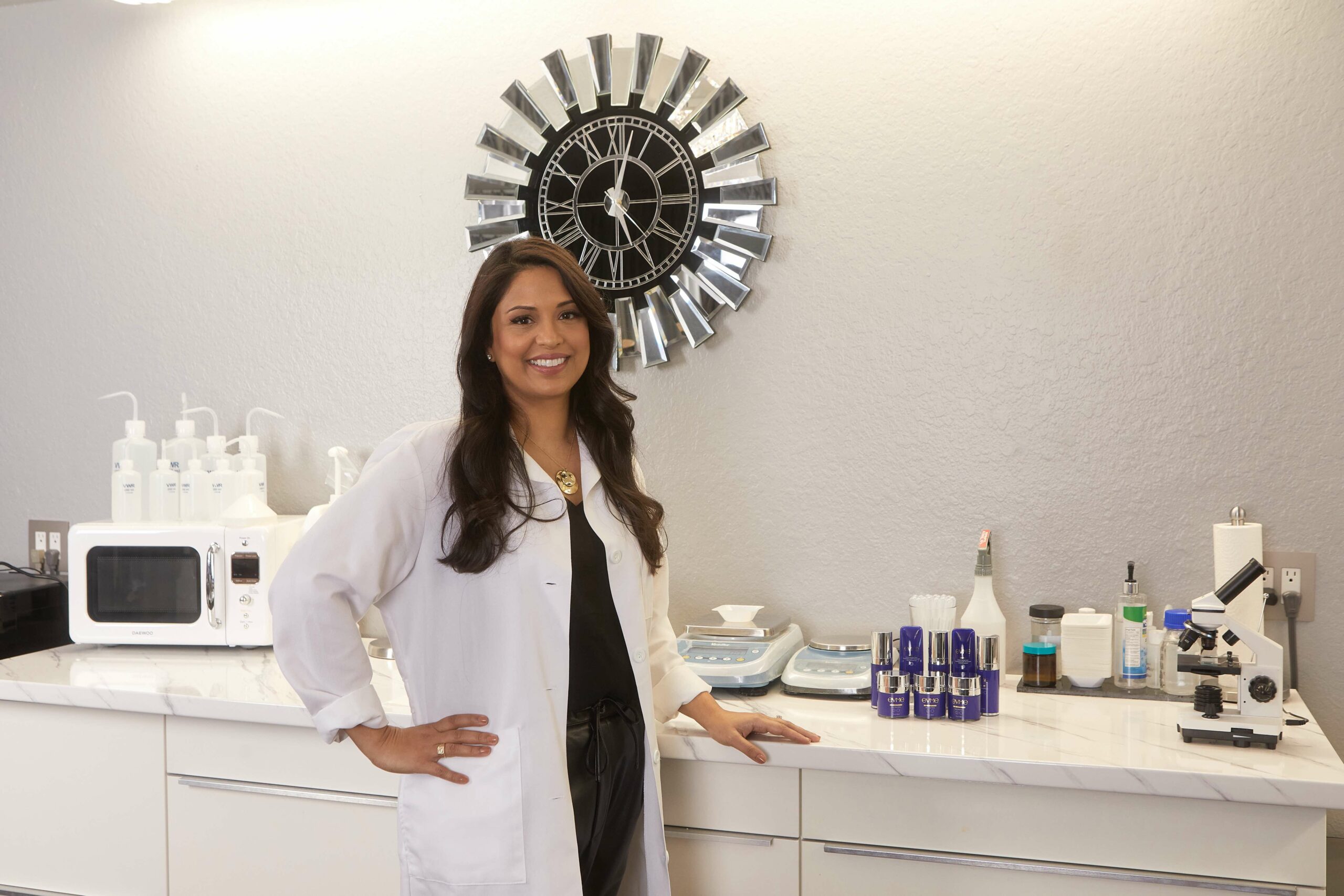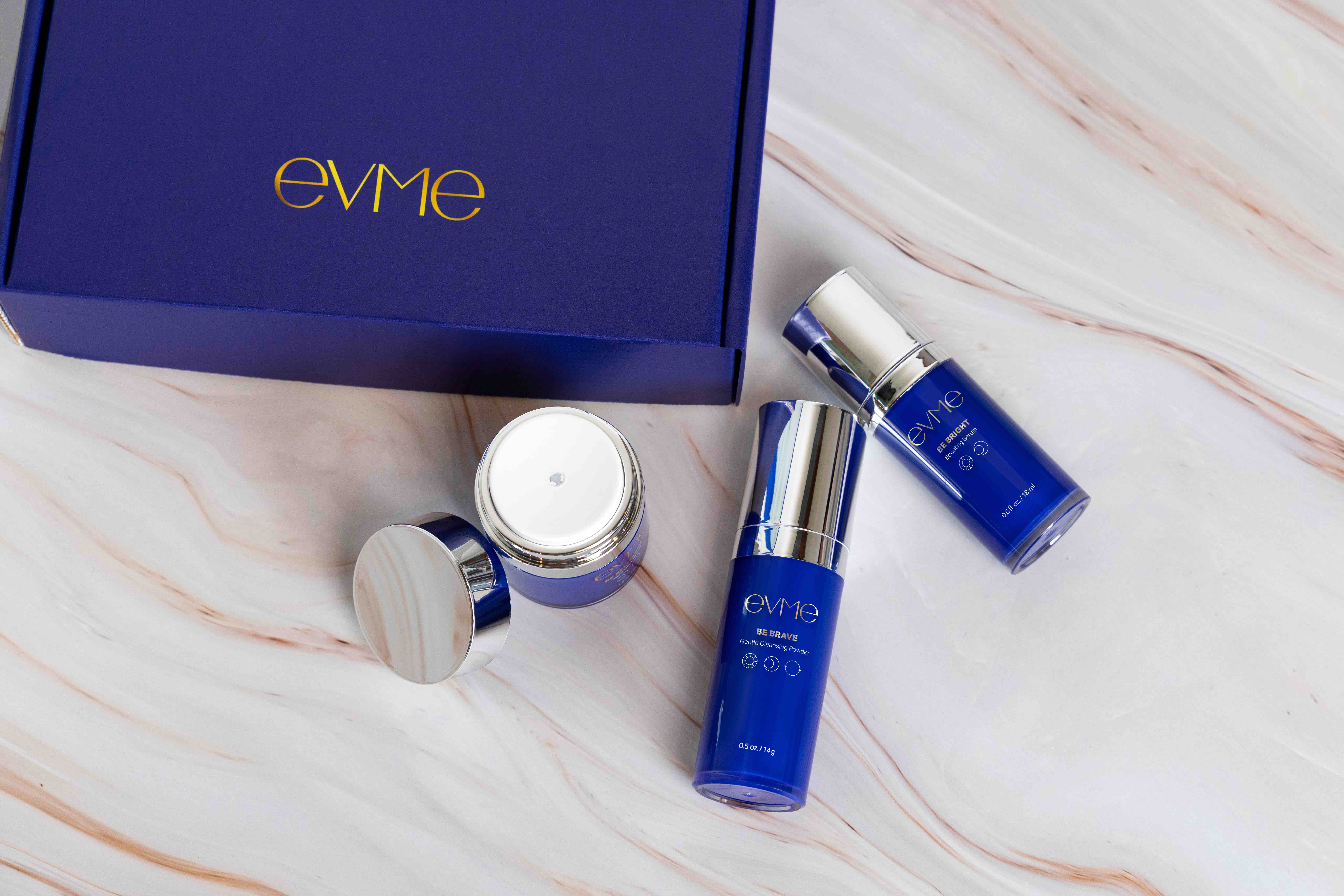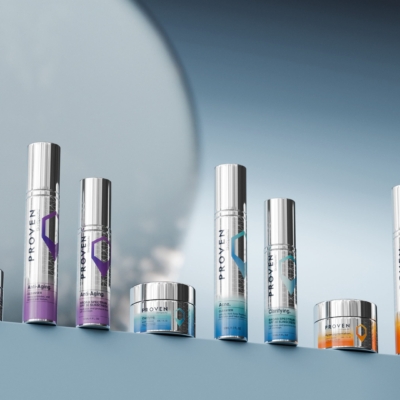
With Evme, An Allergist Wants To Build A Next-Gen Allergen-Free Brand
Beauty retailers’ physical and virtual shelves are overflowing with dermatologist-backed skincare brands, but there are few, if any, created by allergists.
With research showing as high as 71% of the population has sensitive skin, Anjuli Mehrotra, an MIT- and Cornell-trained allergist and immunologist thought she was uniquely situated to address their concerns. Along with Ling Wong, who holds a doctorate in applied sciences from Harvard University and is a general partner at the firms Highbury Group and Sea Lane Ventures, she cofounded the brand Evme to scientifically address skin sensitivity.
Short for “everything made for me,” Evme is currently in soft-launch mode and consists of a kit with three products: Gentle Cleansing Powder, Boosting Serum and Night Glow Crème. The kit is sold on a subscription basis for $99 to $129 depending on frequency. A kit for non-subscription purchases is priced at $99 and has a 30-day money-back guarantee. Especially since many people with sensitive skin been disappointed with products in the past, the kit can serve as a vehicle for trial to prove to them Evme’s products are effective.
Optimally, people should give the products two to three months. “That’s why our subscription model works best—and compliance is important,” says Mehrotra. “Good things come to those who wait.”

Dealing with chronic skin sensitivity personally and professionally, Mehrotra has witnessed firsthand the escalation of skin sensitivity issues and the frustration that erupts from not getting relief from them. On the professional side, she says, “The number of skin allergies has more than doubled in the last 20 years, and the amount of people I see with allergies and skin reactions in my practice has grown exponentially.”
From a personal perspective, she continues, “I would see all these new products online and in stores, but I was scared to try them in case they were going to make my skin react. People shouldn’t need to compromise luxury just because they have sensitive skin. No one was telling the allergy story.”
According to 2015 study published in the Journal of Allergy and Clinical Immunology, around 90% of products labeled hypoallergenic contain at least one major allergen. Led by dermatologist Carsten Hamann, the study tested 187 cosmetic products and discovered fragrances and preservatives that can cause allergic reactions in them. Natural plants and botanicals in beauty products can cause allergic reactions, too.
“One thing that really shocked me is that the term ‘hypoallergenic’ is not regulated. Clean and natural sound great in theory, but those products can still cause reactions,” says Mehrotra. “In addition, there are loopholes in packaging and labels. There are hidden ingredients…There was not one single product I could recommend to my patients wholeheartedly.” And she emphasizes, “It is a big market when you consider how many people have sensitive and reactive skin.”
“The number of skin allergies has more than doubled in the last 20 years, and the amount of people I see with allergies and skin reactions in my practice has grown exponentially.”
As an allergist and immunologist, Mehrotra points out she has a completely different definition of what’s considered hypoallergenic than the conventional definition. “With so many ingredients with high allergic potential and with allergies rising, it has become important to consider a broader set of potential allergens than before,” she says. “It’s not enough to be slightly less allergenic than normal. We need to aim to be as close to ‘sans-allergenic’ as we can.”
On Evme’s website, the brand defines “sans-allergenic” as an attempt to be as near as possible to “being completely allergen- and irritant-free.” It explains, “’Hypoallergenic’ means less allergenic. ‘Sans-allergenic’ means without allergens. That’s how we’re different. We’re moving the bar higher toward being fully ‘sans-allergenic.’”
Mehrotra struggled to identify formulators who could meet Evme’s sans-allergenic ingredient restrictions. She dug into research and even jumped into the lab herself to develop alternatives to preservatives, emulsifiers, fillers, emollients and surfactants. Evme incorporates antioxidant sodium ascorbyl phosphate, a water-soluble form of vitamin C, and hydrators sodium hyaluronate, xylitylglucoside, anhydroxylitol and xylitol.
Evme’s products are free of fragrances, dyes, acrylates, parabens, sulfates, phthalates, and thousands of other known allergens and irritants. Its regimen is suitable for all skin tones and genders. Mehrotra says, “It was important to me, as a person of color, to make sure we address special issues such as hyperpigmentation in addition to the usual anti-aging concerns.”

Most of Evme’s packaging is recyclable or refillable. Its cleansing powder has a no-water formula that’s designed to be environmentally and travel-friendly. The powder format makes it less likely to incite bacteria, limiting the preservatives required to be in the product.
Evme is among a burgeoning group of direct-to-consumer brands targeting allergy sufferers. As reported by the DTC review and news platform Thingtesting, brands selling newfangled allergy treatments or foods that avoid allergens are proliferating as allergy rates mount. Evme has garnered “few million dollars” of investment, per Mehrotra. Tapping the funding, the brand aims to expand distribution from DTC to physicians’ offices. It doesn’t rule out retail down the road.
Evme also has a bursting pipeline of products, notably a sunscreen. “Our goal is to service the needs of sensitive and allergic skin, and we know it doesn’t stop at skincare,” says Mehrotra. Education on skin allergies and sensitivities is a big part of Evme’s positioning, and Mehrotra has assembled online resources to provide “a library of information I never could find.”
Beyond skincare products, Mehrotra is working on an at-home diagnostic tool for skin allergies that she plans to bring to the market in the future. She says, “The only FDA-approved testing for contact dermatitis, one of the main causes of skin allergy, is outdated and unreliable, built almost 40 years ago.”





Leave a Reply
You must be logged in to post a comment.